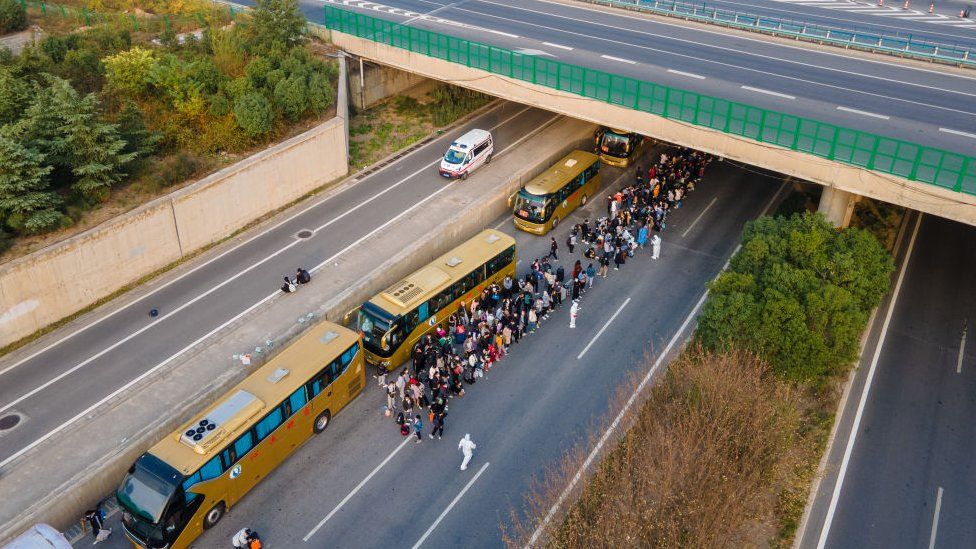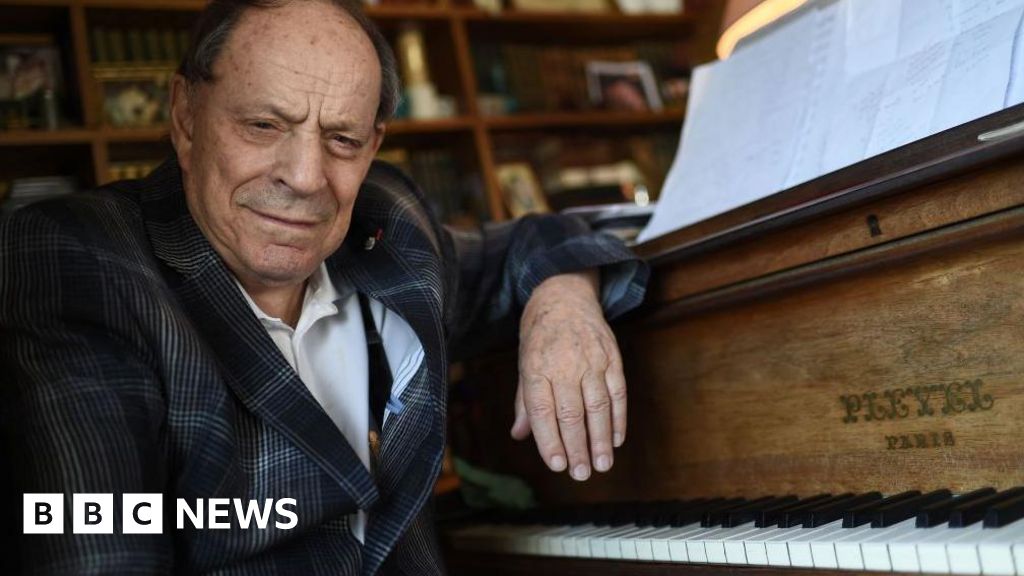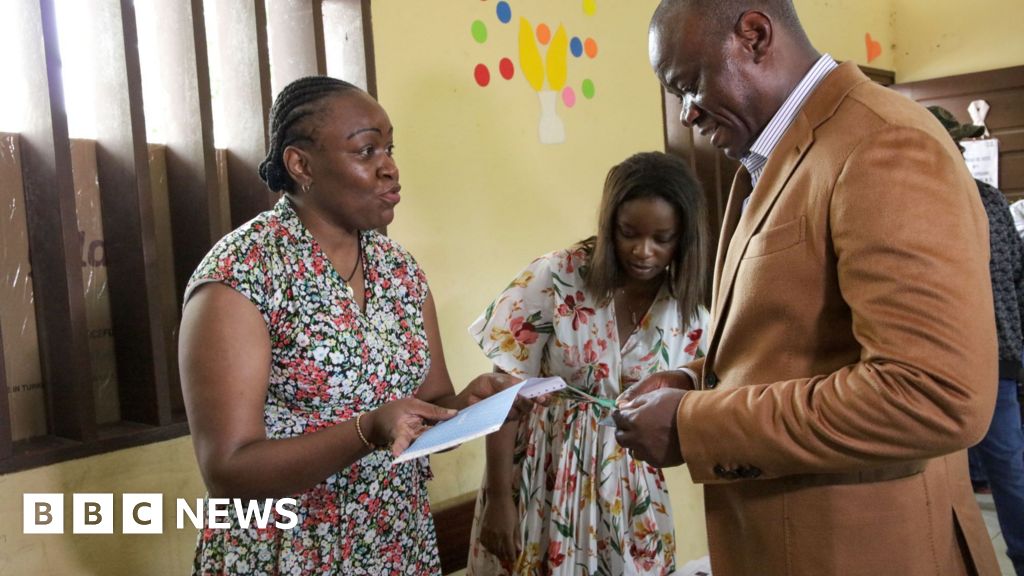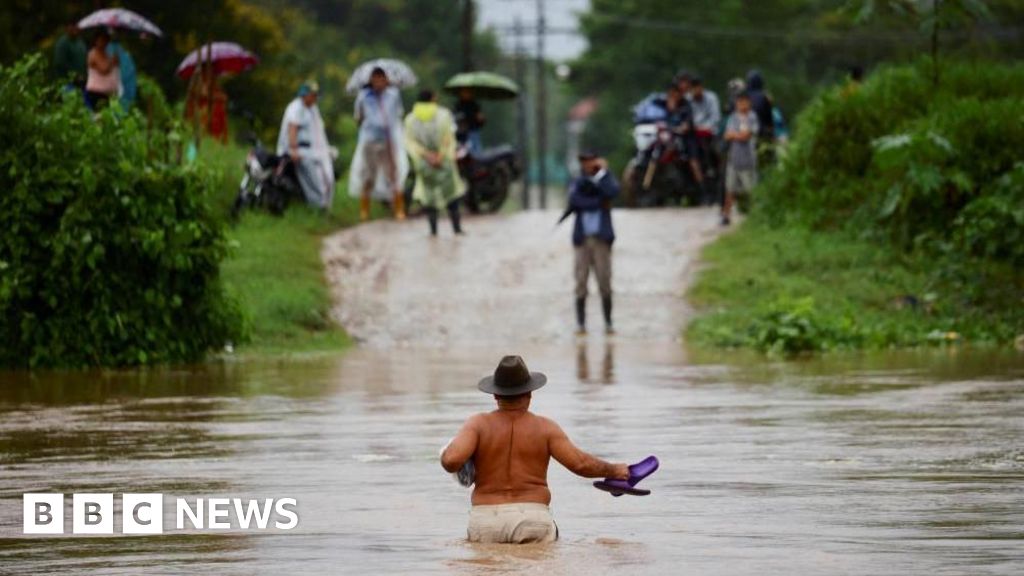ARTICLE AD BOX
 Image source, Getty Images
Image source, Getty Images
Foxconn has responded to the breakouts by laying on buses to take employees to their hometowns
By Stephen McDonell
BBC News, Beijing
China's leader Xi Jinping insists there will be no swerving from zero-Covid - but the ongoing chaos which his government's policy is delivering is there for all to see at the Foxconn plant in the city of Zhengzhou.
What drove the mass breakout at the world's largest assembly line for Apple computers was fear, panic and ignorance.
Foxconn, the company which runs this enormous factory, must shoulder a portion of the blame for this but really the root cause is this country's inflexible, strict, zero-Covid approach.
The BBC has spoken to workers there who paint a picture of an urgent need to escape for their own safety. It may not be rational, but some say they feared for their lives.
Take a 21-year-old Foxconn worker who had been hearing the rumours for a while. The more the stories and speculation continued, the more extreme they were becoming.
It didn't help that her immediate bosses at Foxconn were saying that there were no Covid infections in the factory while the company was telling the media that there were no "symptomatic" infections. And yet there were plenty of known examples of staff who had tested positive.
Hundreds of thousands of staff had been ordered not to leave this huge industrial complex. After workers were confined to only the worker dormitories and other parts of the factory, the rumour mill stepped up another gear.
This young factory worker heard that the army was going to come in and take control so as to enforce a type of giant "living with Covid" experiment which involved allowing everyone in that part of Zhengzhou city to get sick.
Image source, Getty Images
Image caption,Some Foxconn staff have been distributing food and water for those who want to leave
According to these rumours, the plan was to see how many of them would die. Then, if the carnage wasn't too bad, this would provide a guide as to whether the rest of China could open up or not.
Sentiments were spreading on their chat groups like: "Foxconn is going to take my life."
She clearly wasn't the only one hearing this and workers started busting out. On Saturday night footage went round of a yellow barrier fence being pushed down to allow some to escape.
By the next morning, she already had word from some of her friends that they'd made it all the way back to their hometowns.
Half those in her eight-person dormitory had gone. She packed a bag but couldn't take everything.
Rapid Covid spread
Another worker told us she too suddenly panicked before leaving. "To be honest, I did not think it would be that bad at first," she said.
"But then people around me started getting infected. Positive cases in other dorms were not being taken away to quarantine for several days. Those I know who kept working, all started confirming as positive."
Apart from the Foxconn workers, because most of Zhengzhou city is currently under some form of lockdown, phone app health codes will not permit anyone to leave, at least officially.
This means that, even if public transport was operating, you would not be allowed on board and this includes taxis.
The solution for workers at Foxconn - jump over the fence and simply start walking. For some, this has meant travelling on foot with whatever they can carry for more than 100km.
You don't have to search hard to see images with extended lines of mostly young people dragging luggage along the sides of highways.
Ordinary people driving through have taken pity and picked up workers, ferrying them as far as possible.
In scenes reminiscent of the great depression a century ago, workers have been piling onto the backs of trucks, sometimes lighting small fires to keep warm.
The footage of this has kept coming, first spreading around Henan Province then across China and around the world.
This is full tilt zero-Covid economic disruption.
A key problem has been widespread ignorance about the nature of the illness. In much of China, people are as terrified of catching the virus as if it were cancer.
The Chinese government has done little to alter these misunderstandings and, in fact, has often made them worse.
Image source, EPA
Image caption,China's-zero Covid policy has caused widespread disruption
The narrative from those in charge here has been that elsewhere, Covid has been cutting a swathe through the population, but Chinese people should consider themselves lucky because they have the Communist Party to protect them with the zero-Covid approach.
It is true that this strategy has stopped the country's hospitals from being swamped and it is true that Covid has resulted in a tragic loss of lives.
However, it is also true that - for the vast majority of infected people who have been vaccinated - catching the virus means a few days sick at home and nothing more.
This last point is something that many in China are completely unaware of.
So when the workers of Foxconn made it to their hometowns and were put into hastily constructed quarantine facilities at local high schools, for them this was not as bad as the Covid hell they imagined was descending upon them back at their factory.
Staff the BBC has spoken to say they don't know if they will be able to return to work at Foxconn; or if they will be able to even retrieve their remaining belongings in their dorms. They expect that they have lost their work attendance bonuses which boost pay after you do a certain number of days at work in a row. However, again, none of this matters as much as feeling safe.
Naturally, the sight of workers fleeing their place of employment has caused an outcry and Foxconn has responded.
The company announced that those who want to go will be allowed to leave on secure buses which have now been organised in coordination with other towns and which will take people directly to quarantine sites, thus ensuring a much more calm and orderly process.
It has also announced the quadrupling of bonuses for staff who remain on site and don't take leave.
Image source, Getty Images
Image caption,Numbers trying to leave the plant have gone down in recent days
In an announcement, Foxconn said that this was part of an effort to "gradually resume orderly production".
As an official lockdown has been re-imposed on the entire Zhengzhou Airport Economic Zone, the exodus from the factory appears to have slowed to a trickle for the time being.
One volunteer, who has been distributing food and water along the roads, told us that what looked like thousands getting away last weekend had reduced to dozens at a time and even less by the middle of this week.
If Foxconn can't properly manage this crisis, in the short term, it will hit global supply chains for Apple and other products.
But, in the long run, this shows a much bigger problem for China.
The government's system of controlling Covid is not capable of operating without causing significant disruption, not only to people's lives, but potentially to key sectors of economy.
For China's leader Xi Jinping, this may not be as important as maintaining political control. But there are only two paths ahead - alter the zero-Covid approach or see more Foxconn-style upheaval in the future.

 2 years ago
17
2 years ago
17








 English (US)
English (US)